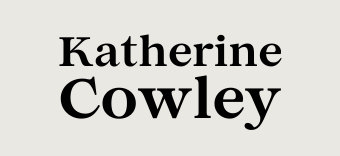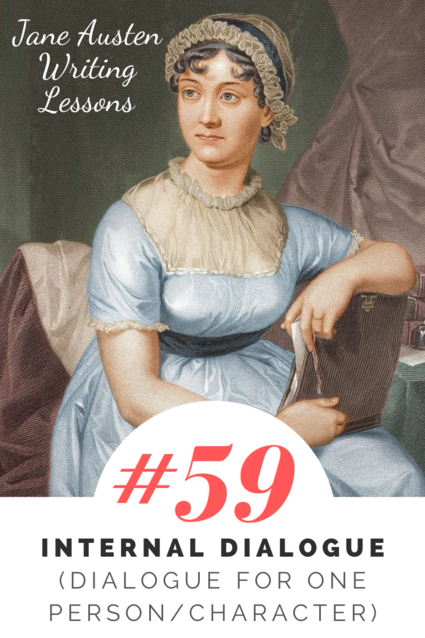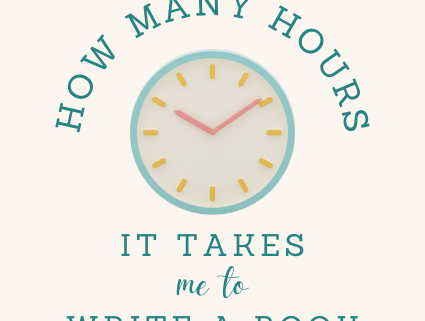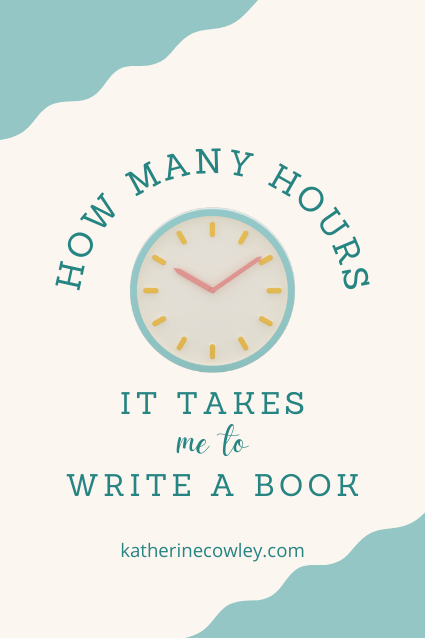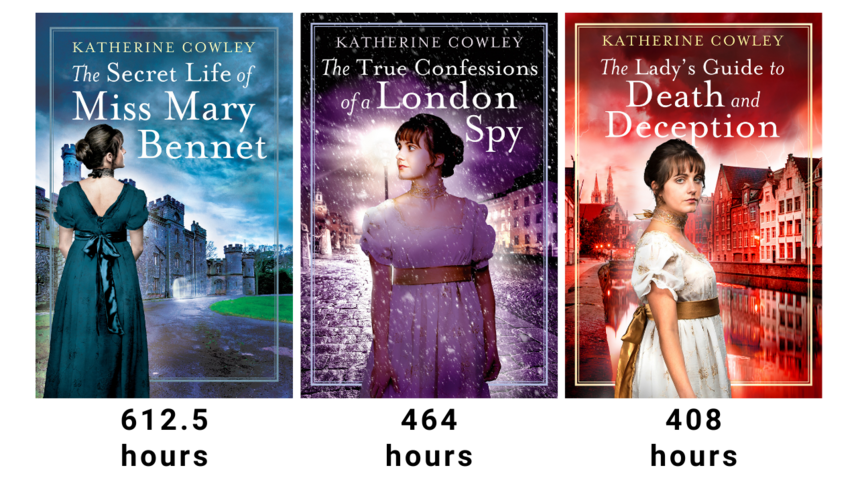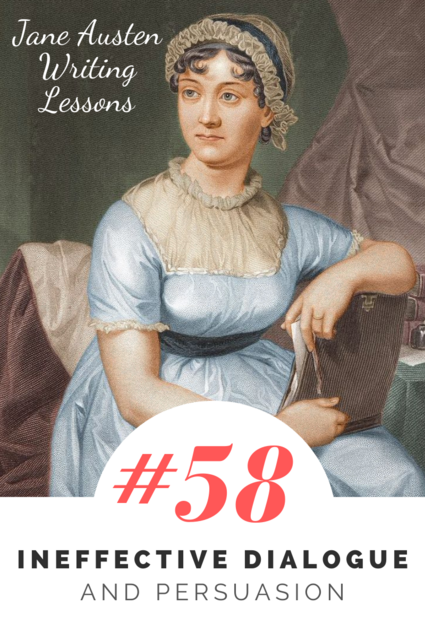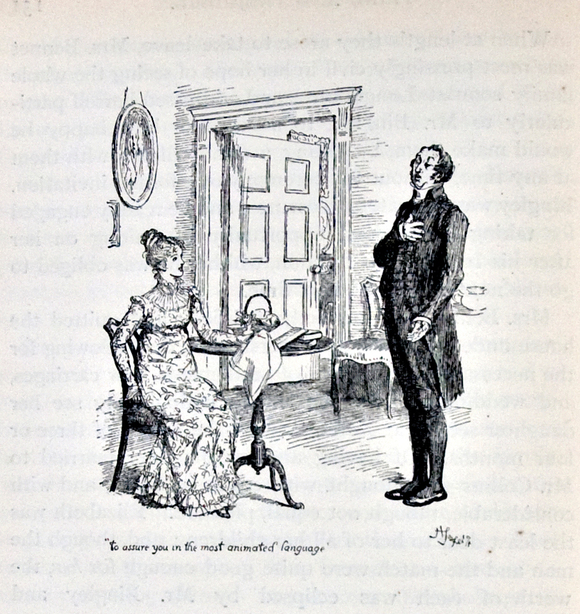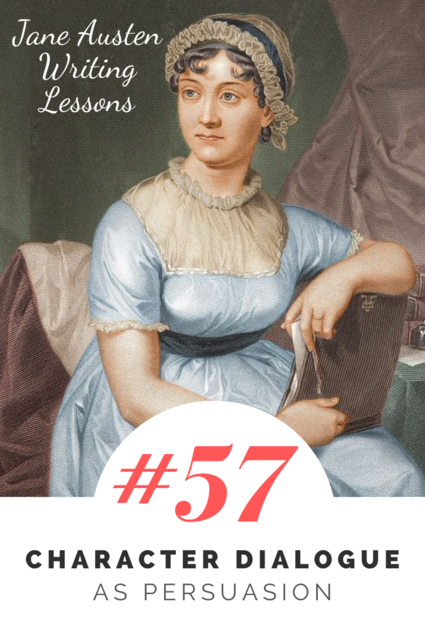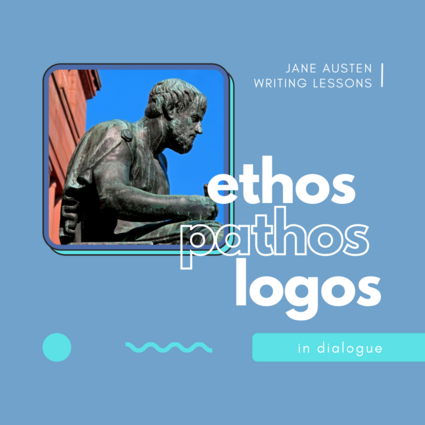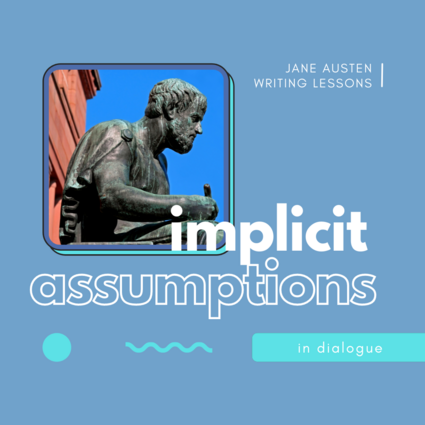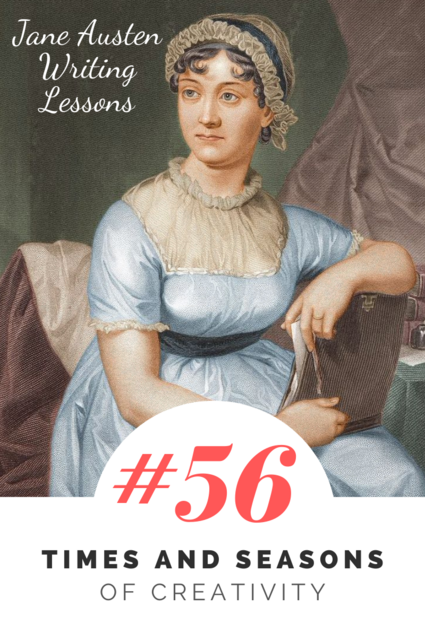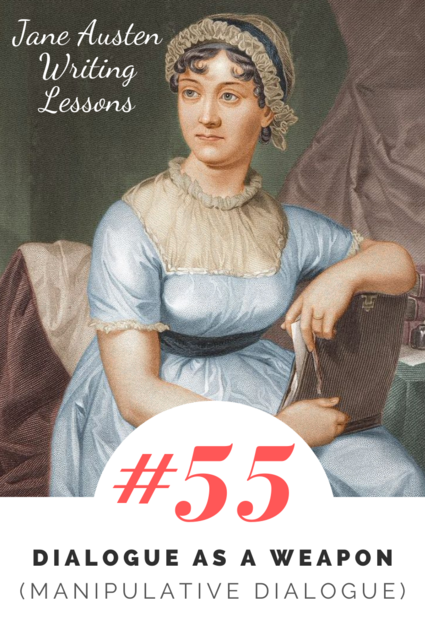#59: Internal Dialogue (Dialogue for One Person/Character)
The very roots of the term dialogue imply that it requires more than one person for there to be a dialogue. According to the Online Etymology Dictionary, dialogue comes from the word dia, meaning “across, between,” and legien, meaning “to speak.” In other words, speech is occurring between people.
Yet there are times in fiction when we use dialogue for only one person—when we type something as dialogue, despite there being only one character, or the speech being entirely internal.
In this post I’ll talk about different forms of internal dialogue, including:
- Soliloquys
- Monologues (the cousin of a soliloquy–but not truly internal)
- Other types of dialogue with oneself
The Theatre Tradition of Speech for One Person
In theater, there are two terms that stand in contrast to dialogue, that represent speech for only one person: soliloquy and monologue.
Soliloquys (One person, with themselves)
A soliloquy is when a character speaks their thoughts aloud. In other words, they are talking to themselves. In a novel, a character can also speak their thoughts aloud—or, if the narrator is providing a close point of view, then a character can talk to themselves entirely in their heads. (In theatre, these thoughts must be spoken aloud, or the audience has no access to them.)
In the novel Persuasion, Jane Austen employs soliloquy when Anne enters her family’s rented house in Bath for the first time:
Anne entered it with a sinking heart, anticipating an imprisonment of many months, and anxiously saying to herself, “Oh! When shall I leave you again!”
Many of the most famous theatre soliloquys are longer passages which reveal much about the characters, their emotions, and their thought processes. Jane Austen incorporates this sort of soliloquy in her novel as well, though most of the time it is not set apart in quotation marks. Instead, she uses an extended passage of free indirect speech (slipping into the character’s thoughts while still using third person) to create longer character soliloquys.
An example of this can be found in the novel Emma, immediately after Emma has found out the truth about the affections of Frank Churchill, Jane Fairfax, and Harriet. This passage would be very easy to rewrite as a spoken Shakespearean soliloquy in a play:
Emma’s eyes were instantly withdrawn; and she sat silently meditating, in a fixed attitude, for a few minutes. A few minutes were sufficient for making her acquainted with her own heart. A mind like hers, once opening to suspicion, made rapid progress. She touched—she admitted—she acknowledged the whole truth. Why was it so much worse that Harriet should be in love with Mr. Knightley, than with Frank Churchill? Why was the evil so dreadfully increased by Harriet’s having some hope of a return? It darted through her, with the speed of an arrow, that Mr. Knightley must marry no one but herself!
Her own conduct, as well as her own heart, was before her in the same few minutes. She saw it all with a clearness which had never blessed her before. How improperly had she been acting by Harriet! How inconsiderate, how indelicate, how irrational, how unfeeling had been her conduct! What blindness, what madness, had led her on! It struck her with dreadful force, and she was ready to give it every bad name in the world. Some portion of respect for herself, however, in spite of all these demerits—some concern for her own appearance, and a strong sense of justice by Harriet—(there would be no need of compassion to the girl who believed herself loved by Mr. Knightley—but justice required that she should not be made unhappy by any coldness now,) gave Emma the resolution to sit and endure farther with calmness, with even apparent kindness.—For her own advantage indeed, it was fit that the utmost extent of Harriet’s hopes should be enquired into; and Harriet had done nothing to forfeit the regard and interest which had been so voluntarily formed and maintained—or to deserve to be slighted by the person, whose counsels had never led her right.
In you are writing a novel or short story in third person, a short soliloquy can be incorporated through either quotation marks around the thought, or by putting the thought in italics. A longer soliloquy will often be through indirect speech. If you are writing in first person, a soliloquy can be marked by quotes or italics, but often is just incorporated naturally into the narrative.
Monologues (One person, with an audience)
A monologue is when a character gives a longer speech aloud to other characters or with a perceived audience. Sometimes this is an entire scene. In Jane Austen’s novels, many characters give monologues intended for an audience to hear (think Mr. Collins).
In many ways, these monologues act like dialogue–there is an audience that is perceived by the character. Yet unlike in dialogue, the character is less likely to be interrupted. As a result, the speech is less of an active conversation with the characters around them.
Monologues take into account persuasive dialogue techniques, and are often meant to stir, change, or impress an audience.
Monologues reflect a character’s internal dialogue, but because they are performative, because they are for in audience, internal thoughts, emotions, and reasoning are filtered through a public, outside intent.
Dialogue for One Person/Dialogue With Oneself
At other times, Jane Austen uses dialogue with only one person, and with no audience, that is not a true soliloquy.
At times, this is because the character is having a sort of conversation with herself. These lines of dialogue can serve a similar role as if someone besides herself had spoken them. Just as in a conversation between two or more people, this internal dialogue with oneself can help the character consider or change her perspective.
In Persuasion, Anne reflects on the fact that her family no longer lives in their ancestral home, Kellynch-hall, and that it is now occupied by the Crofts:
She could not but in conscience feel that they were gone who deserved not to stay, and that Kellynch-hall had passed into better hands than its owners….
In such moments Anne had no power of saying to herself, “These rooms ought to belong only to us. Oh, how fallen in their destination! How unworthily occupied! An ancient family to be so driven away! Strangers filling their place!” No, except when she thought of her mother, and remembered where she had been used to sit and preside, she had no sigh of that description to heave.
In this passage, Anne does not say this dialogue to herself—or at least not unless she is thinking of her mother. But by considering that she could say this to herself, she is presenting a counterargument to her actual views, a perspective that is she is consciously setting aside and not incorporating into her being.
Austen uses many other innovative approaches to internal dialogue, but we are just going to consider one more. In some passages, dialogue that was spoken is then internally repeated as the character attempts to process it or deal with the words.
In Persuasion, after the first time in which Anne and Captain Wentworth meet in the present day, Mary informs Anne what Captain Wentworth thought of her:
“Captain Wentworth…said, ‘You were so altered he should not have known you again.’”
This leads to a flurry of emotions for Anne. She ends up repeating variations of this line of dialogue twice in her mind:
“Altered beyond his knowledge!” Anne fully submitted, in silent, deep mortification. Doubtless it was so; and she could take no revenge, for he was not altered, or not for the worse. She had already acknowledge it to herself, and she could not think differently, let him think of her as he would. No; the years which had destroyed her youth and bloom had only given him a more glowing, manly, open look, in no respect lessening his personal advantages. She had seen the same Frederick Wentworth.
“So altered he should not have known her again!” These were words which could not but dwell with her. Yet she soon began to rejoice that she had heard them. They were of sobering tendency; they allayed agitation; they composed, and consequently must make her happier.
While dialogue traditionally requires at least two people, soliloquys and other types of internal dialogue can be used to great effect, especially as a character looks deeply at themselves, reflects on their life, or decides to move in a new direction.
Exercise 1: Write a soliloquy for one of your characters at a key point in the story, as if they were performing this soliloquy on a stage.
What does this soliloquy teach you about your character? Should parts of it be incorporated into your story, either through internal dialogue or free indirect speech?
Exercise 2: The next time you read a novel, pay close attention to the dialogue. How often does the writer use two people in a scene of dialogue? Three people? Four people? A larger group? Are there any monologues? Are there any moments where the writer uses soliloquy or other sorts of internal dialogue? What is the effect of each different type of dialogue on the character and on the plot?
Exercise 3: Write a short scene which takes an innovative approach to internal dialogue or dialogue with only one character. A few ideas for the type of internal dialogue that you could use:
- A conversation (or argument) with oneself
- Theoretical dialogue that did not or could not occur
- Imagining what another character might say
- Repeated line of dialogue, with or without variation (either the character’s own dialogue, or something someone else said to them or about them)
- Recollection of a series of different things that have been said to the character (by an individual or a group of people)
How Many Hours It Takes Me to Write a Book
On one of my blog posts recapping a year in writing, a reader recently asked how long it takes me to write a novel, and how this time breaks down between drafting and revision.
Because I track my writing time, I can answer both questions rather easily.
Question 1: Total Number of Hours to Write A Novel
For the past three novels I have written, it has taken me between 400 and 650 hours to write and revise the book.
Question 2: The Time Breakdown (How these hours were spent)
This question gets a little more complicated, because I wrote the first drafts for The Secret Life of Miss Mary Bennet and The True Confessions of a London Spy at the same time. However, I went back through my time tracking app, did some number crunching, and broke things out.
Disclaimer: I came up with the premise for the series in 2013, and I did some initial research, and then spent years thinking about the characters and their motivations, daydreaming about scenes, planning emotional arcs, etc. None of this time is included in the following charts, which only include time spent after mid-2017.
Disclaimer 2: rounding occurred at various points when I exported from my time tracking app and then added numbers in Excel. If the numbers are off by an hour or two, then it’s because you’re not seeing all the rounding.
Time Spent Writing and Revising The Secret Life of Miss Mary Bennet
- Research
- Outlining
- Draft 1
- Draft 2
- Draft 3
- Newspaper Research
- Draft 4
- Draft 5
- Draft 6 (with agent)
- Draft 7 (with agent)
- Revisions with Publisher
- Other Tasks
- 76 hours
- 34 hours
- 113 hours
- 88.5 hours
- 108 hours
- 18 hours
- 6 hours
- 14.5 hours
- 77.5 hours
- 17 hours
- 33 hours
- 27 hours
Note: the first draft, which took me 113 hours, was spread out (along with research and outlining) over a period of 11 months. This was a novel that took time to simmer and develop!
What each draft focused on
First draft: The first draft is for me to get the story down. I do revise some as I go, but I also leave plenty of comments for myself for things to fix later. Sometimes I will skip scenes or chapters that I know I will need to add in a future draft, and I am often missing names for key characters (I’ll have lots of _________ to show that I need to add it later). I never show full first drafts to anyone, but I did show bits and pieces to my monthly writing group to get some initial feedback.
Second draft: This draft is the get-it-ready-to-look-at by other people draft. I fill in whatever gaps are left from the first draft, do lots of big picture changes (plot, structure, emotion, relationships, and character), and constantly tweak things at a language and sentence level.
Then I sent the book to my first round of critique partners.
Third draft: Some people break out different types of edits (structural, character, language) into different drafts. I kind of do them all at once. First I created a very large chart on my wall which helped me figure out how to fix bigger picture plot and character problems, and then I dove into changes. For me, a draft sometimes consists of multiple passes–during a single revision, I may go through chapters anywhere from 1 to 4 times, and sometimes I’ll be revising a later chapter and realize I need to go back and change something in a previous chapter that I thought was finished. I decide a draft is finished when I’ve taken care of all the things that seem most crucial–that are really bothering me. I won’t necessarily address every single thing my critique partners have suggested; some I do save for future revisions, and others I set aside and don’t incorporate.
I then added newspaper headings and sent the book to a new set of critique partners. (I like to use people who haven’t yet read the novel and can offer a fresh perspective.) In this case, draft four did not take very long, and then I started querying agents. Then I did another draft and queried more. Then I got my agent–and I wrote a post that talks about the revisions that I did with my agent.
Once the book was acquired by Tule, we did a content edit, another more minor content edit, an edit to make the book shorter, and then copyedits and proofreads.
Time Spent Writing and Revising The True Confessions of a London Spy
- Research
- Outlining
- Draft 1
- Draft 2
- Draft 3
- Newspaper Research
- Draft 4
- Draft 5
- Revisions with Publisher
- Other Tasks
- 67 hours
- 9 hours
- 48 hours
- 149.5 hours
- 11.5 hours
- 19 hours
- 71 hours
- 48 hours
- 35.5 hours
- 5 hours
You will notice that I spent a lot less time on this first draft. However, I paid for it during the second draft, which still holds its winning place as the hardest draft I have ever written in my life.
The drafting process was similar to the first book, however, because the second draft was such a major revision, in this case I did a quick third draft to clean things up before sending to critique partners.
Time Spent Writing and Revising The Lady’s Guide to Death and Deception
- Research
- Outlining
- Draft 1
- Draft 2
- Draft 3
- Newspaper Research
- Draft 4
- Revisions with Publisher
- Other Tasks
- 24 hours
- 14 hours
- 147 hours
- 64 hours
- 93 hours
- 16 hours
- 26.5 hours
- 20 hours
- 3 hours
I wrote the first draft of The Lady’s Guide to Death and Deception over a period of six months. And that was hard–I don’t think I could easily write a first draft in less than that, because I only have so many high-level creative energy on any given day or week, and there are parts of the creative process that just can’t be rushed.
Why Some Books Take More or Less Time
If I’m going to undergo some self-analysis and reflection (why not? I made charts!) then I would say that the first book in the series took the longest in part because it was the first book. I was still figuring out characters, relationships, and arcs. And I was able to apply a lot of what I figured out about the characters–as well as a lot of the research–to books 2 and 3.
My agent and my editor also taught me things about writing, and mysteries specifically, which I was able to apply in the process of writing both books 2 and 3. This truly did cut out a couple of drafts.
Also, book 3 in the series was the only book I have written in which I managed to include both the plot AND all the major sub-plots in the first draft. (In the first draft of both The Secret Life of Miss Mary Bennet and The True Confessions of a London Spy, I had most of the subplots, but the main plot was shaky.)
How Long It Will Take Me to Write Future Books
Prior to the Mary Bennet series, I wrote several (unpublished) novels, but I wasn’t as exact about keeping track of time. Based on the records I have, one novel probably took me at least 700 hours. A novella I wrote (“Tatterhood and the Prince’s Hand“) took about 144 hours.
I truly expect that all my future novels will take me at least 400 hours, and if it’s the first book in a series, it could very likely be in the 600 hour range. I’m currently working on a new secret novel, and I’ve already spent 33 hours on brainstorming and research. I could easily have another 60 to 100 hours of research and outlining before I’m ready to start writing the first draft.
I have a number of writing friends who write much more quickly than I do, but I also have plenty of writing friends who take comparable or longer amounts of time to write and revise a novel. There’s no one right way to do it, and either can produce amazing work, as long as it works well with your writing process and your other life commitments.
#58: Ineffective Dialogue and Persuasion
Mr. Collins’ failed proposal to Elizabeth is one of the core scenes of Pride and Prejudice. In turning down Mr. Collins, Elizabeth asserts her independence, and she actively makes a choice about what she does—and does not—want her future to look like.
But why does Mr. Collins’ proposal fail? After all, he makes many attempts to persuade her to marry him, and he uses the same rhetorical techniques—ethos, pathos, and logos—which are often used more effectively by many of Austen’s characters.
(Quick recap from the previous lesson. Three of the most common rhetorical appeals are ethos, the appeal to authority, pathos, the appeal to emotion, and logos, the appeal to logic/reason.)
Yet Mr. Collins is not alone in failing at persuasion. In Pride and Prejudice, endless characters fail to convince others at various points, including Elizabeth Bennet, Mr. Darcy, Charlotte Lucas, Mrs. Bennet, Lady Catherine de Bourgh, Mrs. Gardiner, Mr. Wickham, and Caroline Bingley.
If there is something that is universal, it is that we often don’t achieve our goals in dialogue. So let’s look specifically at why Mr. Collins does not achieve his persuasive goals, despite using appeals that can be effective.
1894 illustration of Mr. Collins’ proposal by Hugh Thompson, public domain
Let’s consider his first paragraph:
“Believe me, my dear Miss Elizabeth, that your modesty, so far from doing you any disservice, rather adds to your other perfections. You would have been less amiable in my eyes had there not been this little unwillingness.”
Pathos #1: Collins attempts to appeal to Elizabeth’s emotions by complimenting and flattering her. He does not recognize that she is not interested in flattery.
but allow me to assure you, that I have your respected mother’s permission for this address.
Ethos #1: he appeals to authority by explaining that he has her mother’s permission to address her. Yet her mother is not a true authority in her life: Elizabeth is much more likely to heed her father, and she also likes to go her own way.
You can hardly doubt the purport of my discourse, however your natural delicacy may lead you to dissemble; my attentions have been too marked to be mistaken. Almost as soon as I entered the house, I singled you out as the companion of my future life. But before I am run away with by my feelings on this subject, perhaps it would be advisable for me to state my reasons for marrying—and, moreover, for coming into Hertfordshire with the design of selecting a wife, as I certainly did.”
Pathos #2: “Run away with by my feelings.” This is an expression that points to emotions without actually conveying any, and further, it doesn’t match his persona. There is a lack of alignment between himself as a speaker and this rhetorical flourish, and in the following line, we learn that Elizabeth finds this lack of alignment amusing.
The idea of Mr. Collins, with all his solemn composure, being run away with by his feelings, made Elizabeth so near laughing, that she could not use the short pause he allowed in any attempt to stop him further, and he continued:
“My reasons for marrying are, first, that I think it a right thing for every clergyman in easy circumstances (like myself) to set the example of matrimony in his parish;
Logos #1: he makes a logical argument, on why, in general, clergymen should marry. Yet this sort of abstract argument presents a sort of fallacy—it does not follow that Elizabeth should marry him.
secondly, that I am convinced that it will add very greatly to my happiness;
Pathos #3: he, personally, wants happiness. Self-centered arguments are often less effective.
and thirdly—which perhaps I ought to have mentioned earlier, that it is the particular advice and recommendation of the very noble lady whom I have the honour of calling patroness. Twice has she condescended to give me her opinion (unasked too!) on this subject; and it was but the very Saturday night before I left Hunsford—between our pools at quadrille, while Mrs. Jenkinson was arranging Miss de Bourgh’s footstool, that she said, ‘Mr. Collins, you must marry. A clergyman like you must marry. Choose properly, choose a gentlewoman for my sake; and for your own, let her be an active, useful sort of person, not brought up high, but able to make a small income go a good way. This is my advice. Find such a woman as soon as you can, bring her to Hunsford, and I will visit her.’ Allow me, by the way, to observe, my fair cousin, that I do not reckon the notice and kindness of Lady Catherine de Bourgh as among the least of the advantages in my power to offer. You will find her manners beyond anything I can describe; and your wit and vivacity, I think, must be acceptable to her, especially when tempered with the silence and respect which her rank will inevitably excite.
Ethos #2: Mr. Collins pulls out what he believes is his strongest argument. To him, the ultimate authority on all matters is Lady Catherine de Bourgh.
In order for this argument to work, Elizabeth would need to share an implicit assumption—that Lady Catherine is an authority figure.
Yet Elizabeth has never even met Lady Catherine…and further, Elizabeth does not believe that those of a superior rank are innately superior to her.
Thus much for my general intention in favour of matrimony; it remains to be told why my views were directed towards Longbourn instead of my own neighbourhood, where I can assure you there are many amiable young women. But the fact is, that being, as I am, to inherit this estate after the death of your honoured father (who, however, may live many years longer), I could not satisfy myself without resolving to choose a wife from among his daughters, that the loss to them might be as little as possible, when the melancholy event takes place—which, however, as I have already said, may not be for several years. This has been my motive, my fair cousin, and I flatter myself it will not sink me in your esteem.
Logos #2 and Pathos #4: From a logical standpoint, wanting to save a family from financial ruin when you have no obligations to them is a charitable and kindly thing to do. “Look at my good motives!” he says.
And now nothing remains for me but to assure you in the most animated language of the violence of my affection.
Pathos #5: Ah, such violent emotions! Which just goes to show that the addition of adjectives doesn’t always help or prove your case.
To fortune I am perfectly indifferent, and shall make no demand of that nature on your father, since I am well aware that it could not be complied with; and that one thousand pounds in the four per cents, which will not be yours till after your mother’s decease, is all that you may ever be entitled to. On that head, therefore, I shall be uniformly silent; and you may assure yourself that no ungenerous reproach shall ever pass my lips when we are married.”
Apophasis: Here Mr. Collins pulls out a really fun rhetorical device, apophasis, which is talking about something by saying you’re not going to talk about it. In other words, he is denying that it matters to him—yet if it truly did not matter at all to him, would he mention it? And he clearly knows exactly how much Elizabeth is worth financially…
As the scene proceeds, Elizabeth turns down Mr. Collins. He attempts to make more arguments, and she becomes more forceful in his rejections.
Ultimately, Mr. Collins’ persuasion fails because he doesn’t understand his audience. It is almost impossible to persuade someone unless you can really understand them, and their perspective. It is almost impossible to persuade someone unless you share implicit assumptions.
It’s easy to assume that people are like us. That the arguments that would work on us would work on them.
It’s also easy to assume that adding more arguments, more proof, will better help us reach our goals. Yet these nine instances of ethos, pathos, and logos were not enough—in fact, some of them directly hurt his cause.
If Mr. Collins wanted Elizabeth to marry him, the heavy work of persuasion would’ve needed to be fulfilled before this. (And often, the most persuasive arguments are made a little at a time.)
Yet ultimately, I don’t think there is a single argument Mr. Collins could have made that would have convinced Elizabeth to marry him. Even the best persuasion won’t persuade someone if they aren’t open to change.
You may write the rare character who is generally persuasive. Yet most of our characters have moments where they fail at their goals—where tension and conflict are created by them trying to persuade others, but not doing so in effective ways.
Certainly our Collins-esque characters should struggle with persuasion, but so should our Elizabeths and Darcys and Wickhams.
Exercise 1: Ethos
In your personal life, consider what gives someone ethos, or authority and credibility. Who are you most willing to listen to? Who are you least willing to listen to? Are there certain attributes that give someone credibility to you? Are there certain attributes that immediately damage someone’s credibility? Are there certain authority figures you are more inclined to trust or distrust?
Exercise 2: Bad Arguments
Choose something simple that a character might want to persuade another character of. For example, persuading a friend to go to a movie, an acquaintance to make travel plans, or a child to eat their dinner.
Now set a timer for three minutes and make a list of as many bad arguments as possible for this persuasive tasks. These arguments can be mildly bad or extremely bad, preposterous or mostly reasonable, generally unpersuasive or unpersuasive specifically with these characters.
#57: Character Dialogue as Persuasion
Characters speak because they want to create change—and speech is one of the only ways to change other people.
In lesson 55, we discussed when characters use dialogue as manipulation. Manipulation is the unhealthy cousin of a much more useful, overarching principle: persuasion.
Persuasion is when a speaker creates change in an audience—whether an individual or a group—by considering what matters to that audience. Persuasion requires using what matters to the audience to show how a change in thought or behavior would be beneficial.
Over two thousand years ago, Aristotle analyzed different elements of effective persuasion. In a given situation, he wrote that one must find “the available means of persuasion.”
Some characters knowingly draw on the available means of persuasion, consciously considering what would be effective for an audience. Other characters do so unknowingly or intuitively. Some characters are good judges of what would be persuasive for a given audience; other characters are poor judges of their audience.
Regardless of whether a character uses persuasion consciously or unconsciously, effectively or ineffectively, they are drawing upon what Aristotle categorized as the three major appeals we use in persuasion: ethos, pathos, and logos.
Ethos: appeals to the authority of the speaker, or to others who the listener would find authoritative.
Pathos: appeals to emotion.
Logos: appeals to logic and reason.
In the novel Persuasion, Lady Russell draws upon ethos, pathos, and logos as she attempts to persuade Anne to consider Mr. Elliot as a possible marriage partner. She says:
“I only mean that if Mr. Elliot should some time hence pay his addresses to you, and if you should be disposed to accept him, I think there would be every possibility of your being happy together. A most suitable connection every body must consider it—but I think it might be a very happy one.”
Here, she draws upon pathos—appealing to emotion as she encourages Anne to consider her future happiness. She also draws upon ethos—everyone, including herself, would consider this a “most suitable connection.” It was Lady Russell who had originally encouraged Anne to break off her engagement with Captain Wentworth, and Lady Russell knows that she is an authority figure in Anne’s life, someone whose opinion and blessing matters to Anne.
Yet Anne is not convinced. She replies:
Mr. Elliot is an exceedingly agreeable man, and in many respects I think highly of him,” said Anne; “but we should not suit.”
Lady Russell is not persuasive because she assumes that Anne and Mr. Elliot are well suited, but Anne does not feel the same. In other words, they do not share an implicit assumption.
Implicit assumptions are the underlying assumptions that undergird an argument and its appeals. These are things which must be accepted as true in order for the argument to work. Often, implicit assumptions tap into the way a character views the world, their philosophy towards life and people, and what matters to them. In order for an argument to be successful, the speaker and the listener must share at least one implicit assumption.
Lady Russell sees that her argument in not working, so she shifts her approach. Instead of making an argument about Mr. Elliot, which would be harder for her to win, she makes an argument which taps into Anne’s priorities for herself. She uses an implicit assumption that both she and Anne share: that Anne wants to be like her mother.
“I own that to be able to regard you as the future mistress of Kellynch, the future Lady Elliot—to look forward and see you occupying your dear mother’s place, succeeding to all her rights, and all her popularity, as well as to all her virtues, would be the highest possible gratification to me.—You are your mother’s self in countenance and disposition; and if I might be allowed to fancy you as she was, in situation, and name, and home, presiding and blessing in the same spot, and only superior to her in being more highly valued! My dearest Anne, it would give me more delight than is often felt at my time of life!”
Here, we have logos—logic and reasoning: Anne can have her lifelong home back if she marries Mr. Elliot. We have pathos—emotion—as memories of Anne’s mother are conjured. We have ethos—appeal to authority—as Lady Russell talks about the joy that this sort of decision would bring her. And because the implicit assumption underneath these appeals is shared, it’s quite an effective argument:
Anne was obliged to turn away, to rise, to walk to a distant table, and, leaning there to pretend employment, try to subdue the feelings this picture excited. For a few moments her imagination and her heart were bewitched. The idea of becoming what her mother had been; of having the precious name of “Lady Elliot” first revived in herself; of being restored to Kellynch, calling it her home again, her home for ever, was a charm which she could not immediately resist. Lady Russell said not another word, willing to leave the matter to its own operation.
Many characters are not nearly as persuasive as Lady Russell—in the next lesson, I’ll discuss how Mr. Collins ineffectively appeals to ethos, pathos, and logos when he proposes to Elizabeth. Yet whether or not these tools of persuasion are used effectively, they are an integral part of the way in which characters speak.
Exercise 1: Using Ethos, Pathos, and Logos in Your Life
The next time you need to persuade someone of something, big or small, consciously use either ethos, pathos, or logos, or a combination of these appeals. Consider which appeals will be most effective for the situation and the person to whom you are speaking. Afterwards, reflect. Was the appeal effective? Was this a departure from how you would have normally approached the conversation? Would another appeal or approach to the conversation have been more effective?
Exercise 2: Persuasive Scene
Write a short scene between two characters, in which one character is attempting to persuade the other. Make the initial persuasion be ineffective, and then have the character use appeals and an implicit assumption that are more effective.
Exercise 3: Analysis
Analyze scenes of dialogue which you have written in which one character is attempting to persuade another characters or a group of characters. Which appeals does the character use? (Ethos, pathos, logos.) What do the appeals used say about the character attempting to persuade? Does the speaker share an implicit assumption with their audience?
#56: Times and Seasons of Creativity
Writers and other creatives often feel the pressure to be creating constantly. Praise is extolled upon those who are able to draft quickly, revise quickly, and publish often.
I am naturally a slow writer. My ideas need time to simmer and develop, and I can’t rush the drafting process. At times, the pressure to be a fast writer has made me feel inadequate or insecure, or I’ve felt jealous of those with a faster process.
At other times, life has interfered with my creativity: sicknesses and other challenges can force creative projects into little scraps of low-energy time, or sometimes even cause creative projects to be put on hold.
This, of course, can be discouraging. However, I’m encouraged by looking at Jane Austen’s life and writing.
Let’s consider a few snapshots of Jane Austen’s writing life:
1787-1799: The Early Years
- 1787-1793: Juvenilia
- 1793-1795: Lady Susan
- 1796-1798: Elinor and Marianne; First Impressions
- 1798-1799: Northanger Abbey
This is a very productive period of writing for Jane Austen. During her teenage years, she wrote many short pieces of various genres and styles, and she shared these pieces with her family. These works are now known as her Juvenilia.
Then she moved on to longer, more developed works—Lady Susan, Elinor and Marianne, First Impressions, and Northanger Abbey.
1800-1809: Years of Struggle
- Some revisions of Lady Susan and Northanger Abbey
- 1804: started The Watsons
This period in Jane Austen’s life stands in stark contrast to the prior years. She did some revisions on both Lady Susan and Northanger Abbey, and while both books were sold to publishers, neither were published. She started the book The Watsons, but then abandoned it, leaving it unfinished. She may have done some additional revisions on her other works, and she did continue to write letters, but it was much slower period of writing for Jane Austen.
Why did she write less?
The answer was simple: Life was difficult for Jane Austen during these years.
First, her father uprooted their family to Bath. Jane Austen did not like living in Bath, and her days were filled with social obligations and responsibilities that were difficult to escape.
Then her father died. His death caused Jane Austen to abandon The Watsons—she could not work on it any longer. It also began a period of severe financial insecurity. Jane Austen moved from place to place, often having to rely on others for a place to stay and struggling to have enough for the basic necessities. It is little wonder that she was not able to make much progress on her writing.
1809-1817: The Chawton Years
- 1809: Moved to Chawton
- 1811: Sense and Sensibility
- 1813: Pride and Prejudice
- 1814: Mansfield Park
- 1815: Emma
- 1817: Persuasion; Sanditon (unfinished)
Jane Austen’s brother Edward had been adopted (became the heir) for distant relatives in Chawton. In 1809, he invited Jane and several other family members to live in a cottage on the estate. Suddenly, Jane Austen had security. She had a home. And she had the space and the time to write.
She revised Elinor and Marianne—which she had originally written between 1796 and 1798—and published it as Sense and Sensibility. She rewrote First Impressions as Pride and Prejudice. And then she wrote three new novels: Mansfield Park, Emma, and Persuasion. She began the novel Sanditon, but did not finish it before her death.
Times and Seasons of Writing
We each have times and seasons of writing, and it’s important to treat ourselves with compassion and understanding. We will have times, like the decade in Jane Austen’s life, where it is more difficult to write, where life circumstances create additional challenges for creativity. We might even have years where we cannot actively work on our creative goals.
In another post, I wrote about how even at Chawton, Jane Austen had to actively work to create space for writing in her life. Even in seasons of writing, it takes active work to give time to writing, and writing may still not be easy.
I also like to remember that it’s okay if certain projects take time to reach their final form. Sense and Sensibility and Pride and Prejudice are two of the most important novels in English literature, and two of my favorite novels. And they were not written quickly. They required writing and re-envisioning and rewriting over a 17-year period.
Like Jane, life may at times interfere with our writing. But like Jane, we will have fertile seasons of writing. Like Jane, we can tell our stories and share them with the world.
Exercise 1: Write the story of your creative journey. What has led you to be the writer you are today? Which times and seasons of your life have been more or less creative? Is there anything from the less creative periods of your life that has helped you with your writing?
Exercise 2: Take a project that you set aside, perhaps years ago. Spend a few minutes considering it. If you were going to rewrite it today, how would you approach it differently?
#55: Dialogue as a Weapon (Manipulative Dialogue)
Many characters use dialogue as a speech act—as an action that can create or induce change. And one of the primary modes of dialogue is persuasion: the act of speaking can often influence emotions and choices.
While many characters will go to great lengths to be persuasive—consider, for example, Mr. Collins’ proposal to Elizabeth in Pride and Prejudice—other characters use dialogue not simply as a means of persuasion, but as a weapon. These characters wield dialogue in manipulative and even abusive ways.
In Mansfield Park, Mrs. Norris consistently uses dialogue as a weapon. She does not do so to everyone—those who she sees as her equals or her superiors are spared. However, she sees Fanny as lesser. Fanny is her poor niece that has been taken in to be raised at Mansfield Park, and to Mrs. Norris, Fanny is undeserving of any respect or consideration.
In the novel, the characters decide to perform a play, and they insist that Fanny participate. Fanny does not want to be in the play, for she sees participating as morally repugnant. She expresses her desire to not participate, and many characters attempt to persuade her. Then Mrs. Norris joins the fray, whispering a rebuke to Fanny, but doing so in a way that everyone else can hear:
Mrs. Norris completed the whole by thus addressing her in a whisper at once angry and audible—“What a piece of work here is about nothing,–I am quite ashamed of you, Fanny, to make such a difficulty of obliging your cousins in a trifle of this sort,–So kind as they are to you!—Take the part with a good grace, and let us hear no more of the matter, I entreat.”
“Do not urge her, madam,” said Edmund. “It is not fair to urge her in this manner. You see she does not like to act. Let her chuse for herself, as well as the rest of us. Her judgment may be quite as safely trusted. Do not urge her any more.”
“I am not going to urge her,”—replied Mrs. Norris sharply, “but I shall think her a very obstinate, ungrateful girl, if she does not do what her aunt and cousins wish her—very ungrateful indeed, considering who and what she is.”
Consider how language is used as a weapon:
- Norris shames Fanny publicly
- She trivializes Fanny’s concerns and emotions
- She is manipulative and speaks of what Fanny owes everyone
In her second passages of dialogue, she also:
- Casts weighty moral judgment on Fanny’s desires and planned actions
- Uses a logical fallacy to give Fanny no other possible paths of behavior besides obeying her or publicly going against her
- Alludes, very directly and unkindly, to Fanny’s inferior position
In response, we read that “Edmund was too angry to speak.” And perhaps he is too angry to speak—but in many ways, he is also used to the weaponized language that Mrs. Norris uses on Fanny. He does not come to her defense.
Instead, someone who is not a member of the family intervenes. Miss Crawford is shocked by Mrs. Norris’ verbal treatment of Fanny, manages to partially remove Fanny from the situation, and spends the rest of the scene trying to be especially kind to Fanny. And despite the fact that Miss Crawford is all in for the play, she attempts to show reservations about it and sympathize with Fanny’s perspective.
As often happens with abusive people in real life, Mrs. Norris does not just do this once to Fanny: this is consistent, and at times it escalates to threats of throwing Fanny out of the house.
In a later chapter, Miss Crawford has invited Fanny to dinner. Mrs. Norris is not pleased, feels that Fanny is undeserving of such favor, and informs Fanny of such.
“The nonsense and folly of people’s stepping out of their rank and trying to appear above themselves, makes me think it right to give you a hint, Fanny, now that you are going into company without any of us; and I do beseech and entreat you not to be putting yourself forward, and talking and giving your opinion as if you were one of your cousins—as if you were dear Mrs. Rushworth or Julia. That will never do, believe me. Remember, wherever you are, you must be the lowest and last; and though Miss Crawford is in a manner at home at the Parsonage, you are not to be taking place of her. And as to coming away at night, you are to stay just as long as Edmund chuses. Leave him to settle that.”
“Yes, ma’am, I should not think of anything else.”
“And if it should rain, which I think exceedingly likely, for I never saw it more threatening for a wet evening in my life, you must manage as well as you can, and not be expecting the carriage to be sent for you. I certainly do not go home to-night, and, therefore, the carriage will not be out on my account; so you must make up your mind to what may happen, and take your things accordingly.”
Her niece thought it perfectly reasonable. She rated her own claims to comfort as low even as Mrs. Norris could.
The terrible, tragic thing is that Fanny has internalized Mrs. Norris’ views. She believes she deserves no comfort. Of course she will not request a carriage, even if it rains.
While Fanny endures her tribulations with sweetness and courage, and while at the points where it matters most to her, she stands up for herself, this weaponized, abusive language has harmed her. As was Mrs. Norris’ intent.
In many ways, Mrs. Norris represents one of the most insidious types of antagonists: someone who is close to the main character and has influence and control, and who uses that power to abuse others in both action and speech.
Mrs. Norris is not a pleasant character to read—and likely wasn’t a pleasant character to write. But the inclusion of her character adds to the themes of the story, adds to our understanding of the oppression inherent in Mansfield Park and its characters.
Many of Austen’s novels includes characters who are manipulative to some degree or another. In Emma, Emma manipulates Harriet into refusing an offer of marriage. In Sense and Sensibility, Lucy Steele extracts a rather-manipulative promise from Eleanor. And in Pride and Prejudice, Mrs. Bennet tries—and fails—to manipulate Elizabeth into marrying Mr. Collins. Most of these characters are less flawed than Mrs. Norris, less thorough in their manipulation (not generally abusive), have at least semi-positive intentions, or have less power than Mrs. Norris does over Fanny. Yet some of the principles are the same. When characters have something they truly want, they are sometimes willing to cross the line between normal persuasive tactics and manipulation.
One of my favorite aspects of Mansfield Park is that by the end of the novel, Fanny is in a new situation—a situation in which she is free from Mrs. Norris’ manipulations and abusiveness. In Emma, Harriet also becomes free of manipulation, and by the end of the book is able to choose what she wants and be confident in herself. While dialogue is sometimes used as a weapon by characters in Austen novels, and while this dialogue may cause great harm, the characters on the receiving end of this harm are consistently able to overcome their struggles.
Exercise 1: Write a brief scene where a character is trying to persuade someone of something. Whether or not the character succeeds is up to you. Now write a second version of the scene. This time, the character should use some degree of manipulation.
Exercise 2: Make a list of people who are manipulative. They can be mildly, occasionally, or ineffectively manipulative; they can be thoroughly and abusively manipulative; or they can be anywhere in between. These people can be individuals you have encountered in real life, or characters from stories.
Exercise 3: Consider an antagonist in a story you have written, or a story you plan to write. Do they ever use dialogue as a weapon? Would it be useful for them to do so? If not, why?
